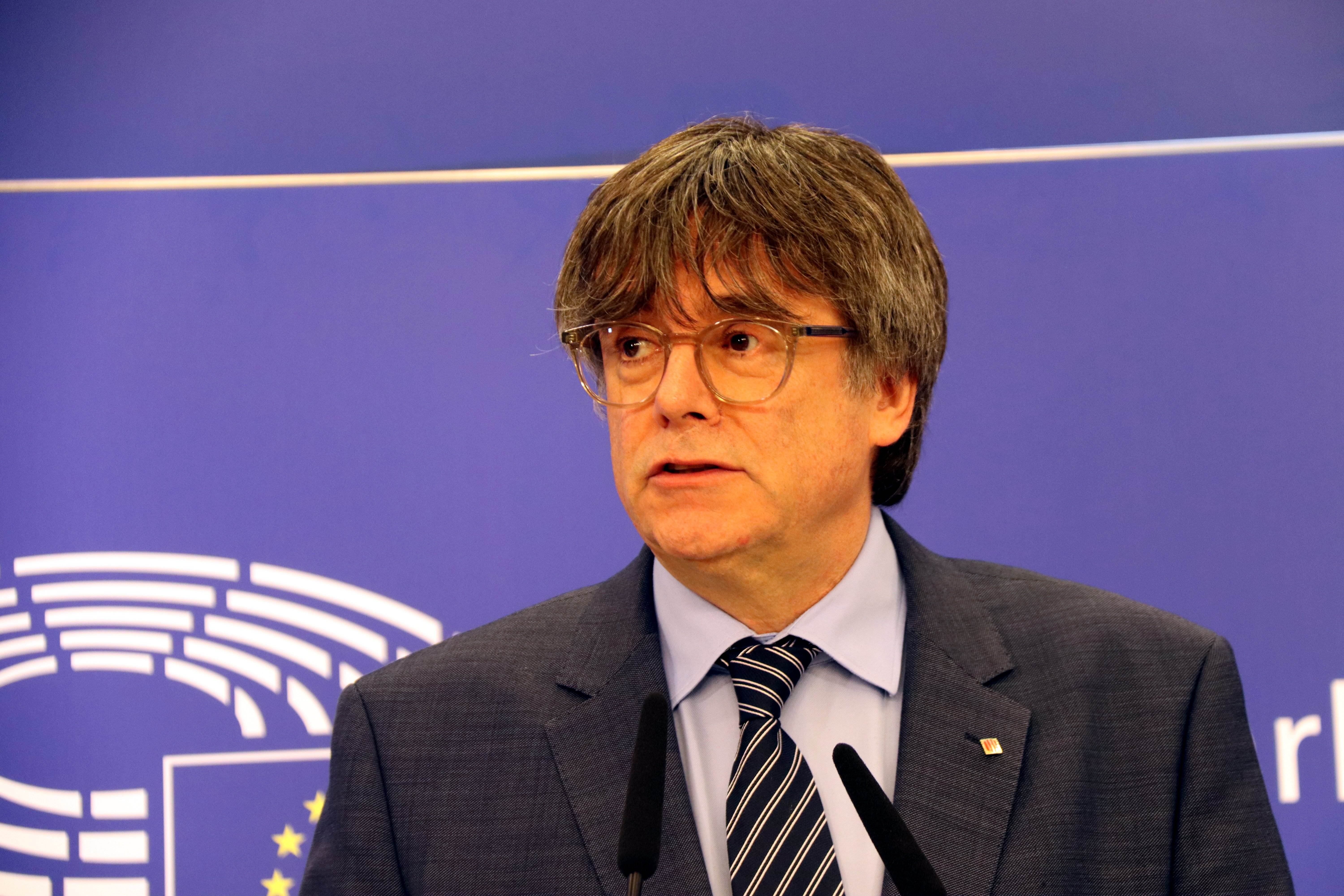The Catalan president-in-exile, Carles Puigdemont, stated 24 hours before the constitution of Spain's Congress of Deputies that his party, Together for Catalonia (Junts per Catalunya) needed "verifiable facts" before committing its seven Spanish Congress MPs to any vote. Around a quarter past eight this morning, those certifications arrived: the acting foreign minister, José Manuel Albares, registered a request with the European Council for three languages from the Spanish state - Catalan, Basque (Euskera) and Galician - to be recognized as official in the European Union, as ElNacional.cat reported earlier this Thursday. In addition to the re-opening of the commission of investigation into Spain's illegal actions through the so-called "state sewers", and the impetus for a new one, long-requested, to investigate the 2017 terror attacks in Barcelona and Cambrils, the agreement for which Junts has supported Francina Armengol as president of the Congress includes two points that represent a paradigm shift for the status of Catalan, a language with more than 10 million speakers, as well as for Basque and Galician. The granting of official status in the European Union to these languages, a procedure that began this Thursday and that will have to be validated by the European Commission, will mean that they will have a status within the EU equivalent to that of English, French or German, something totally unprecedented. The other main aspect will be that these three "co-official languages" of the Spanish state will be able to be used in the Spanish Congress with full normality from the next plenary session, as well as their use being possible in the rest of the chamber's procedures.
The request has been forwarded to the presidency of the Council of the European Union and to Thérèse Blanchet, the Council's general secretary. In this document, Albares states that the Spanish government requests "the inclusion of Catalan, Basque and Galician, Spanish languages other than Castilian [Spanish] that enjoy official status in Spain, in the linguistic regime of the EU". In order to do this, it will be necessary to modify the regulation of the language regime and the foreign affairs head requests that it be included in the agenda of the next EU Council meeting dealing with general business, on 19th September. The presidency of this body is held by the Spanish state for this half-year. Sources from Junts have told this newspaper that, if this proposal is not approved, there will be no negotiations for the investiture of Pedro Sánchez and the pro-independence party will not support him. This Thursday's agreement does not commit the party to support a hypothetical Sánchez government; they are different negotiations. This is the document received by Junts that certifies that the petition has been registered and that it will be put to a vote in one month:

In a statement giving details of the agreement, Junts specifies that the procedure to be followed will be that specified in the Treaty on the Functioning of the EU, which regulates the mechanism for modifying the language regime of the Union. "In the fight for Catalan to have the necessary mechanisms and legal protection, its consideration as an official language in Europe is decisive", they say, while claiming that they have asked for actions and proof of them because "the principle of mistrust" has caused them to be "scrupulous in the formation of this commitment". Under the deal, it is envisaged that the use of Catalan, Basque and Galician will be possible in the European Parliament, that documents will have a version in these languages and that political representatives of the EU will also be able to use them. Regarding the use of Catalan in the Spanish lower house, Junts states that it can now be used from the very next plenary session and that it is "perfectly legal", so that "it does not need any reform of the regulations". These measures give Catalan, Euskera and Galician the same status as other official European languages (there have been, till now, a total of 24) and may protect the Catalan-immersion school system from the judicial moves to impose a quota of 25% Spanish use.

